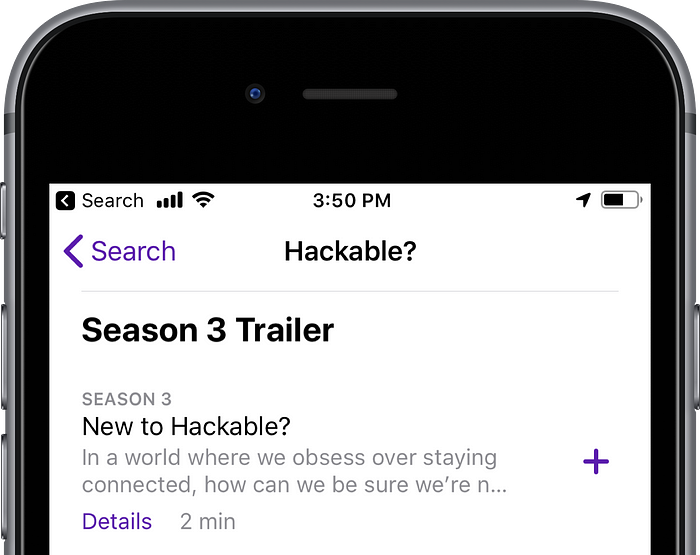Every podcast needs a trailer

Every podcast needs a trailer.
Some podcasts should probably have more than one trailer.
Even if you’ve already published dozens of episodes, there’s a good chance your show could benefit from adding, revamping, or replacing your trailer.
Let’s look at a few different types of podcast trailers, and the roles they play in a show’s success.
The “coming soon” trailer
In many ways, podcast trailers are like movie or TV trailers. They’re a promotional tool, designed to build anticipation and excitement for an upcoming series.
An effective podcast trailer should:
- Make a clear promise that the show will deliver on
- Explain the who, what, when, and why of the show
- Be truthful (not misleading). Don’t promise what you can’t deliver.
- Whet the listener’s appetite. This can be done with a list of upcoming guests, topics, or short audio clips from not-yet-released episodes.
- Include a clear CTA to subscribe, follow, or favorite
Remember: the role of a “coming soon” trailer changes over time. A well-produced trailer can have a life long after your show has launched. For example, consider the movie trailer for Turner and Hooch:

This 90-second trailer was produced more than 30 years ago, but it’s still featured prominently in-app.
A “coming soon” trailer also works as a placeholder episode
Most shows want to be available on all the major platforms (Apple Podcasts, Google Podcasts, Spotify, Stitcher, etc.) on launch day. But it can take a while to be approved and listed in all the major podcast directories.
This creates a chicken-and-egg problem: you can’t effectively promote your show on the major platforms until it’s approved, but you can’t get approved until you publish your first episode.
The solution: publish a short “coming soon” trailer. That way, you can submit your show to the major directories before you launch your first full episode. Then, once your show is approved, you can start sending potential listeners to your show.
The “new season” trailer
If your podcast is produced in seasons (like Serial), or your show has taken a hiatus, season-level trailers are your friends.
HBO produces season-level trailers, like this one for Game of Thrones:
If your show has been away for a while, a season-level trailer is a great way to re-engage your existing subscriber base, and let them know you’re coming back.
A season-level trailer can also update your listeners on any changes in format, host, or release schedule.
For instance, Charles Schwab’s show Choiceology recently got a new host. The handover from Dan Heath (host of S1) to Katy Milkman (host of S2) was handled in this S2 trailer:
Season-level trailers are a great tool to get back on listeners’ radars after a hiatus, and to build excitement and anticipation about a new season.
The evergreen introduction trailer for new listeners
Whether you’ve published 1 episode, or 100 episodes, an evergreen season-level or series-level trailer is an opportunity to make a great first impression for potential new listeners.
Remember that Apple Podcasts prominently “pins” trailers to the top of podcast feeds:

This is similar to YouTube’s “channel trailer” placement or Facebook’s cover video placement. You can use it to similar effect.

Think about this privileged placement, and consider the number of potential new listeners who will use your podcast trailer to help them decide whether to subscribe.
I’ve seen several smart podcasters retroactively add a season-level or series-level trailer in this spot. For instance, the team at Hackable? recently added a new trailer to their feed, more than a year after the series first launched:
This trailer explains what the show is, who you’ll hear from, and clearly communicates the why: Hackable?’s benefit to the listener.
Remember
- If you don’t have one already, consider creating an evergreen series-level trailer, aimed at new listeners
- Consider producing both series-level and season-level trailers as appropriate
- Don’t let your series-level trailer go stale. If your show changes in a meaningful way (new format, new host, new release schedule), refresh your trailer.
- Make sure your trailers have their
<itunes:episodeType>set totrailer. If you don’t know how to do this, ask your hosting provider.
What are the most effective podcast trailers you’ve heard?
Sign up for the Pacific Content Newsletter: audio strategy, analysis, and insight in your inbox. Once a week.
